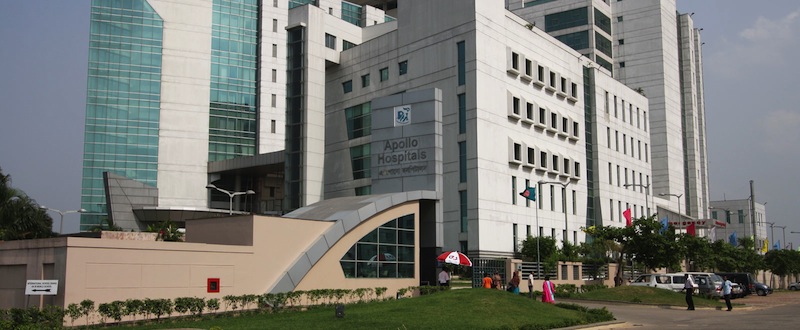
We try to keep this article of Paolaexpat, a comprehensive and very interesting insight about health for expats in Bangladesh, as updated as possible. Should you have more information, please share it with us!
Reading the post report on Bangladesh before coming here, I wondered whether we had made the right decision. The picture regarding health for expats in Bangladesh is not a rosy one: Bangladesh has “inadequate medical facilities, low standards of hygiene, inadequate standard and testing mechanisms, and a difficult climate which creates a favorable environment for disease-causing organisms“.
So how do expats in Bangladesh cope?
Prevention
Before you leave your home country:
- Have a full medical check-up (including eyes, ears, teeth, pap smear, mammogram).
- Consult your doctor and ensure you have the necessary vaccinations (TB, diphtheria, polio, tetanus, typhoid, and Hepatitis B).
- Stock up on prescription medicines, and bring a supply of anti-diarrhoeal medicine, antihistamines, and anything else you may need, as well as a medical kit.
When you are here:
- Sign up with one of the two hospitals (see below).
- Your greatest risk is from road accidents: be aware, and extremely careful on the roads. Do not travel outside the city unnecessarily by car.
- Drink only boiled or bottled water (see under Water below). There are many providers of bottled water, who bring huge dispensers to your home, and fill them up regularly.
- Ensure you wash all fruit and vegetables thoroughly, using sterilizing tablets or a little bleach.
- Cook all food thoroughly.
- Avoid street food.
- Sleep under a mosquito net, and use an insect repellent (expats all say the locally produced Odomos brand, available at all supermarkets, is the most effective!)
- Always carry a hand sanitizer with you.
Illness
Prevention, unfortunately, is not always enough. Malaria is a risk outside Dhaka, but not in the city. Dengue fever, however is prevalent. It’s a flu-like illness which may be complicated by hemorrhage or shock. The infection is transmitted by Aedes mosquitoes, which bite primarily in the daytime and favour densely populated areas, though they also inhabit rural environments. There is no prophylaxis available. Anyone with symptoms should seek medical help.
Respiratory problems, and skin and other allergies are common, due to the poor air quality. Many expats in Bangladesh bring air purifiers with them. We use de-humidifiers, which help keep the damp at bay!
There is no way to avoid the occasional stomach upset. Treat small bouts of diarrhoea yourself, but seek medical help if you do not get better quickly. The US embassy website advises: “If diarrhoea is severe or bloody, or if fever occurs with shaking chills, or if abdominal pain becomes marked, or if diarrhoea persists for more than 72 hours, medical attention should be sought“.
Typhoid is a risk: a friend had typhoid and dengue simultaneously last year, and it took her several months to recover.
Treatment
Clinic
For non-serious ailments, the ICDDR,B Travellers’Clinic is excellent. It is open every weekday at the ICDDR,B Hospital (where Oral Rehydration Salts were invented), and twice weekly at the more conveniently located American International School.
Private Doctor
Dr. Wahab, a local general practitioner (trained in Germany) is said to have a good experience in and knowledge of tropical diseases and how to treat them. He is able to do a number of tests on the premises, e.g. stool samples, and X-rays; others he sends to the local military hospital.
Dental clinic
The Adventist Clinic is fine for minor dental problems. I have been there to get my teeth scaled, and it was fine.
Hospitals
There are two ‘State-of-the art’ hospitals in Dhaka, the United and the Apollo. Expats in Bangladesh are generally signed up with one or other of them, and I have heard good reports of both. One friend said: “I’ve had a couple of illnesses since I arrived here a year ago and had good hospital care at the United Hospital. Once was when I had a reaction to the mendhi [henna design] they did on my hands and arms. I was seem immediately and prescribed medication. The second time was when I got Dengue, and had a three-day stay – EXCELLENT service in the hospital!”
However, another friend told me “I once took my kid to the ER at United, and it was an experience out of a Monty Python movie- only I didn’t find it funny at the time…”
And the heavy traffic is a problem: you wouldn’t want to be trying to reach a hospital quickly in an emergency…
For any serious accident or illness, people are generally evacuated to Bangkok or Singapore. A friend takes her daughter to Bangkok for her orthodontic treatment.
Water
Surface waters in Bangladesh may be heavily contaminated with human waste, and well water in much of central and southern Bangladesh may contain arsenic. So it is important to be extremely careful. We always use bottled water, though I must admit, I’m careless when it comes to brushing my teeth.
Food
Everyone in Dhaka knows food can be seriously contaminated with chemicals. A friend says: “I shudder when thinking about the type of chemicals dumped on fruit, vegetables, fish and shrimps to make them last longer or weigh more…“.
Here’s what another contact had to say: “I developed a strawberry allergy in Dhaka – I looked like a world map! It happened three times before I realized what was triggering it. Dr Wahab suggested it’s the chemicals used on/in the fruit.”
Some people only eat tinned or frozen imported food, but most of us simply take the risk. There is a small shop that sells organic food, including duck eggs, fruit, vegetables, and fish, but the range is limited. I grow herbs and salad on my rooftop, and am fortunate enough to have mango and pomelo trees in my garden.
So all in all, the health situation in Bangladesh is not good. However, in the twenty months we have been here, we have kept pretty healthy. My husband suffers from allergies, due to the pollution and damp, but manages to keep it more or less under control with eye drops and antihistamines. I have never (touch wood) had to consult a doctor. There have been the occasional stomach upsets, solved by a couple of Imodium and a diet of Oral Rehydration Salts, bananas and rice, but the main problems I have suffered are much the same as in Europe: colds and flu, cured by a couple of days in bed and some paracetamol or Lemsip. So, although the picture looks bleak, we manage well. And the humid weather does wonders for my hair, nails, and skin!




